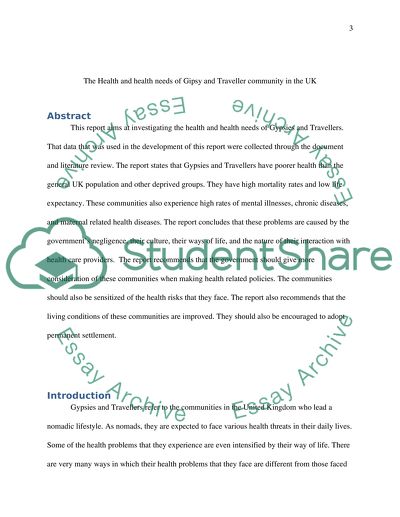Cite this document
(The Health Needs of Gipsy and Traveller Community in the UK Case Study, n.d.)
The Health Needs of Gipsy and Traveller Community in the UK Case Study. Retrieved from https://studentshare.org/health-sciences-medicine/1632058-gipsy-and-traveller-community-needs-improving-access-to-health-care
The Health Needs of Gipsy and Traveller Community in the UK Case Study. Retrieved from https://studentshare.org/health-sciences-medicine/1632058-gipsy-and-traveller-community-needs-improving-access-to-health-care
(The Health Needs of Gipsy and Traveller Community in the UK Case Study)
The Health Needs of Gipsy and Traveller Community in the UK Case Study. https://studentshare.org/health-sciences-medicine/1632058-gipsy-and-traveller-community-needs-improving-access-to-health-care.
The Health Needs of Gipsy and Traveller Community in the UK Case Study. https://studentshare.org/health-sciences-medicine/1632058-gipsy-and-traveller-community-needs-improving-access-to-health-care.
“The Health Needs of Gipsy and Traveller Community in the UK Case Study”. https://studentshare.org/health-sciences-medicine/1632058-gipsy-and-traveller-community-needs-improving-access-to-health-care.


